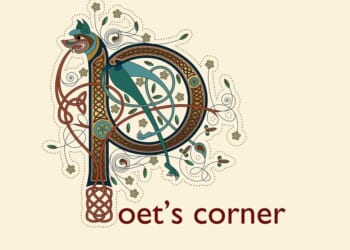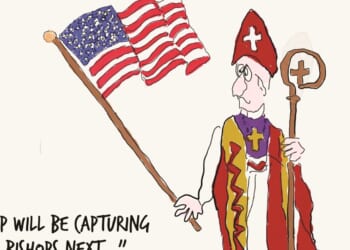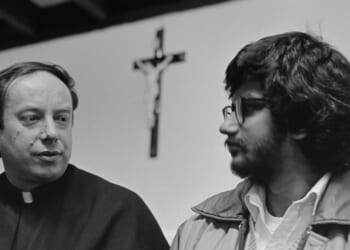THERE are few things more humbling than a church-growth strategy document that tries to quantify mystery. Metrics, dashboards, KPIs, engagement rates — these are the buzzwords of our age, the language of results and performance. Somewhere along the way, the Church began to speak it fluently.
We have borrowed the tools of business to solve a crisis of presence, and have turned the sacred into something to manage. Although intentions may be earnest, the tone has become hollow.
This isn’t to say that strategy has no place. Stewardship matters; so does governance. But, when the spreadsheet becomes the lens through which everything is viewed, we lose something that cannot be regained through efficiency. We lose wonder, and the slow patience of the Spirit; we lose our soul.
You can’t growth-hack holiness. You can’t benchmark a burning bush. The Church doesn’t exist to impress shareholders, but to point to a reality that cannot be measured: to proclaim a Kingdom that is hidden — a Kingdom that appears in tears at a bedside, or in silence in a sanctuary, or in bread broken at an altar, even when only six people are present.
When we speak of audiences and content as if they were central to our mission, we confuse the fruit of the Church with its function. The fruit may sometimes be measurable. The function is not.
TOO often, we have softened our theology while sharpening our strategy. We worry about attendance more than about reverence. We write sleek vision statements while the sanctuary grows cold. We spend hours in consultation and minutes in prayer. The irony is that most of those returning to the Church are not looking for cleverness. They are looking for depth, for reverence, for the echo of God.
Young people are not fools. They see through branding, and they don’t want a church that feels like a start-up. They want something older than themselves, which will outlast them: a half-empty church lit only by candlelight; a voice cracking slightly during the Exultet; a moment of silence so full that it aches. None of these things will appear on a dashboard, but they are the moments when the Kingdom draws close. They cannot be reported, but they are remembered.
THE things that most shape a soul are often invisible: a whispered prayer, a glance at the cross, the Holy Spirit’s quiet and unseen tug of the soul. When we trade these mysteries for clarity and measurability, we may find our churches more efficient. They may even be full of people there for a “good time”. But they are also more empty of spirit.
Somewhere along the line, reverence began to be treated as optional. Incense and vestments became “style choices”, and silence became awkward. Beauty became an afterthought. But liturgy is not an accessory: it is the beating heart. It is how the faith enters the body. It is where we are formed.
Symbols and seasons, psalms and processions — these train our attention on what is real, not just what is useful. To attend mass with seriousness, to mark time through the calendar, to kneel and confess — these things are not nostalgic: they are necessary. They shape the soul in a way that no strategic document can.
THERE is a kind of priest who now spends more time in governance meetings than at hospital bedsides, who knows diocesan finance systems better than the rhythm of morning prayer, and who is measured more by paperwork than presence.
People aren’t looking for managers. They are looking for shepherds: who will sit with them in silence and who still believe in mystery.
The priest is not called to run a programme, but to stand at the altar and proclaim the mystery of faith. The Church’s strength comes not from relevance, but from holiness.
To resist managerialism is not to reject order, but to remember what order is for. The Church needs structure, but it is structure in service of mystery, not the other way around. If we recover reverence, we may also recover resilience. If we recover beauty, we may recover belief — not because people are drawn to pretty things, but because beauty still evangelises. It points beyond us.
We cannot programme a revival, but we can prepare for one. We can light the candles. We can tend the altar. We can let the silence stretch long enough for God to speak — because, when he does, we will not need a strategy to explain it.
















